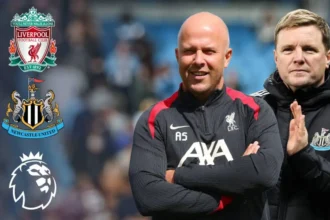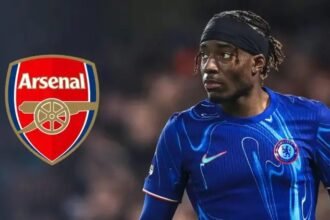When news broke that Viktor Gyökeres was threatening strike action at Sporting CP to push through a summer move, it stirred memories of players who’d tried similar power plays. But while the Swedish striker may yet land on his feet at Arsenal, not every player who’s gone rogue has been so lucky. In fact, history is full of stars who bet on leverage they didn’t have – and watched the whole thing unravel.
Harry Kane – A Cautionary Tale in Public Pressure
By the summer of 2021, Harry Kane had earned sympathy as Tottenham’s overachieving talisman with nothing to show for it. But the way he handled his attempted exit left more questions than support. Kane’s desire to join Manchester City was no secret, and neither were the tactics he used. From his infamous golf-course chat with Gary Neville to a conveniently delayed return to pre-season, it felt like a carefully orchestrated PR push to move on.
Unfortunately for Kane, Daniel Levy is immune to sentiment. The Spurs chairman dismissed City’s tepid offers and laughed off talk of a gentleman’s agreement. Kane’s decision to show up late — blamed on a Covid test miscommunication — only deepened the standoff, earning him a fine and damaging his reputation among fans.
He stayed put, missed the season opener, and eventually fell back in line. It took two more years — and Bayern Munich instead of City — to finally get out. By then, the damage to his legacy at Tottenham was already done.
Virgil van Dijk – Public Denial, Private Frustration
Before becoming a Liverpool icon, Van Dijk was in an awkward holding pattern at Southampton. In 2017, Liverpool’s aggressive pursuit of the Dutchman triggered a formal complaint and a stern response from Saints. Van Dijk, frustrated by stalled talks, was widely accused of refusing to train — a claim he publicly rejected.
Still, the club fined him, left him out of matchday squads, and forced him to reintegrate as they weathered the storm. Liverpool, meanwhile, issued a rare apology after their overtures went too far.
Van Dijk returned to the starting XI, quietly played through the first half of the season, and waited. A conveniently timed injury late in the year set the stage for a clean break. By January, the £75 million deal was done. In hindsight, it worked out — but only after months of tension and reputational risk.
Morgan Schneiderlin – A One-Man Revolt That Went Nowhere
Schneiderlin was another Southampton player who believed his loyalty had earned him an exit clause. In 2014, he watched teammates like Luke Shaw, Dejan Lovren, and Adam Lallana leave for bigger clubs. But when his turn came, the door slammed shut.
Furious, he made his feelings known on Twitter, lamenting that six years of work had been “destroyed in one hour.” He then pulled out of a pre-season friendly, seemingly prepared to take a stand. That lasted about a week. By the time the Premier League kicked off, he was back in the squad, left to play out a season he clearly wanted no part of.
A move to Manchester United followed a year later — but not to the Spurs team managed by Mauricio Pochettino, the man who helped elevate him. The timing was off, the destination less ideal, and his United career never really took off.
Pierre van Hooijdonk – From Hero to Pariah
If there’s a blueprint for how not to handle a transfer standoff, Pierre van Hooijdonk might have written it. After a prolific promotion campaign with Nottingham Forest, he watched in dismay as key players were sold off and the club refused to match Newcastle’s £7 million interest in him. Forest instead slapped a £10 million price tag on their star striker, then did little to improve the squad.
Van Hooijdonk stayed away entirely, returning to the Netherlands in protest and refusing to rejoin Forest until November. By then, the club was spiraling toward relegation. He scored six goals in 19 appearances but was a ghost in the dressing room, resented by teammates and dismissed by manager Dave Bassett.
The following summer, Forest sold him to Vitesse for half of what they could’ve earned a year earlier. Van Hooijdonk later insisted he wasn’t the villain, but even he admitted the situation had turned toxic. It’s hard to come back from that sort of fallout.
Gyökeres may yet get his dream Arsenal move, but these cases show how delicate the game of transfer brinkmanship can be. It only takes one misstep — a mistimed quote, a botched return, or a misread market — for the whole plan to collapse. For every player who engineers an exit, there are several others who tried the same and ended up stuck, sidelined, or scapegoated.











